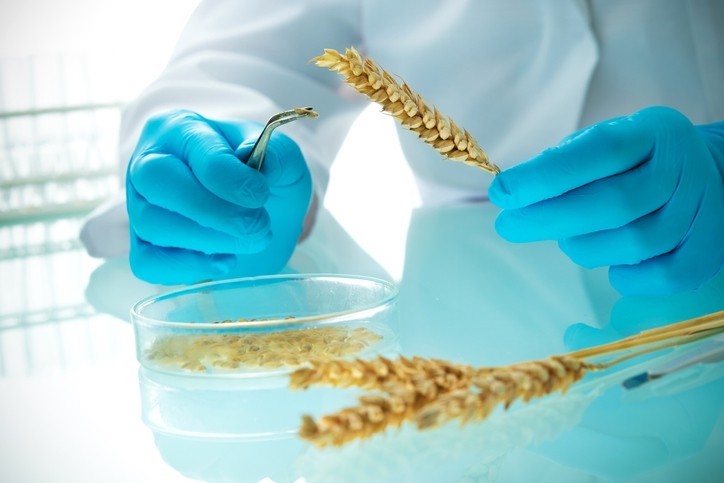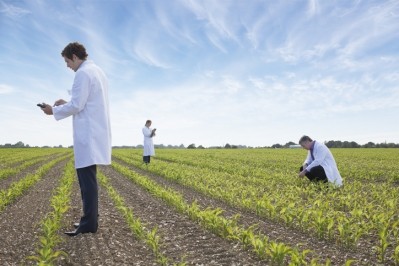USDA study: Brexit could propel agricultural biotechnology forward in UK

In a note on biotechnology trends in the UK, Jennifer Wilson, agricultural specialist, at the US Department of Agriculture’s foreign agricultural service (FAS), said as the EU is the UK’s largest trading partner, the UK will likely retain much EU food law for some years to come.
“In the short to medium term (one-three years), the current landscape for cultivation and importation of genetically engineered (GE) products is not expected to alter. The UK will always be mindful of EU import requirements and approvals when setting their own. Senior UK politicians have consistently spoken out in favor of simple genome editing [though]. However, considering the European Court of Justice ruling on New Plant Breeding Techniques (NPBTs), a mechanism where the UK could legally deviate from the EU regulation is not yet clear.”
Once its transitioning from the EU is over, and trade negotiations are completed, it should be more evident whether the UK has the freedom to make modifications to the legislation that it will inherit, and if it has an intention to take a different approach to regulation, said Wilson.
She noted that in his inaugural speech as UK Prime Minister, in July 2019, Boris Johnson said “let’s liberate the UK’s extraordinary bioscience sector from anti-genetic modification rules.” Also, “let’s develop the blight resistant crops that will feed the world.”
The Department for Environment, Food & Rural Affairs (Defra) is responsible for the control of the deliberate release of GE agricultural products and for national, EU and international policy on the environmental safety of such products. Wilson outlined how the new secretary of state for Defra, George Eustice, has not yet made any public comment about genetically engineered foods since taking up the position in February 2020, but that, as UK minister for food and farming, in October 2018, he said:
"We disagree with the judgement the European Court of Justice (ECJ) has come up with. We think gene editing and cisgenesis is largely an extension of conventional breeding techniques, the likes of which we have had for decades. I think this would be an early candidate for us to depart from the approach the EU is taking. If we are serious about trying to reduce our reliance on chemical pesticides and tackling some of these agronomic challenges, we do need to embrace an accelerated form of genetic breeding.”
UK biotechnology research
The private sector's interest in developing varieties of GE plants suitable for UK and wider EU cultivation has waned. Almost all of the 60 or so GE crop trials conducted in the UK since 2000 have been subject to vandalism. This, together with the uncertainty and delays that are characteristic of the EU approval process, amounts to an unattractive investment environment, said Wilson.
Publicly-fund laboratory and fieldwork on plant biotechnology continues though, and innovative biotechnologies, such as CRISPR-Cas9, are increasingly used in UK research projects, she said.
In the 2018 growing season, Rothamsted Research conducted the UK’s first field trial of genome-edited Camelina plants with two lines aimed at improving understanding of lipid metabolism related to the omega-3 work. To safeguard this study, it was conducted within Rothamsted’s secure field site. The John Innes Centre has increased its capacity to provide the research community with targeted gene knockouts in cereals, particularly barley, and Brassica oleracea using RNA-guided Cas9, she said.
But Wilson said it is unlikely any of the work will be brought forward for commercialization in the UK within the next five years.
While the UK has several organizations, such as the Roslin Institute and the Biotechnology and Biological Science Research Council (BBSRC), active in public, positive engagement on animal biotechnologies, there are also many organizations actively campaigning against the technologies, including but not limited to GeneWatch, Friends of the Earth, the Soil Association, and Compassion in World Farming (CIWF).
UK consumer acceptance of GE feed
GE animal feed is not an issue for most consumers in the UK, noted the USDA report.
Like EU counterparts, the UK is a protein-deficient market that needs to import grain and oilseed derivatives to feed livestock. When comparing UK imports of soy, corn, and other animal feed products, likely to be derived from genetic engineering, against EU-28 imports, the UK typically represents 10-15% of the existing EU import market, said the USDA. The UK derives most of its soybean meal from Argentina and DDGS from the US States. The UK accounts for around 60% of the annual total amount of DDGS shipped to the EU, it added.
Animals fed with these products are not labeled as GE, and there is no genetically engineered material found in finished meat and dairy products. Still, in more upscale outlets (5-10%) where the buyer is less price-conscious, there is a trend to remove GE animal feed in the food chain where possible, according to the US publication.
In 2016, a survey of 2,000 Brits, carried out by Populus for the agrochemical company, Bayer Crop Science, found that two thirds of respondents said that they would support GE food so long as it did not harm public health or the environment. Some 54% said that they agreed with GE crops in principle and a further 10% said they were the only way to feed a growing global population, while 27% said that they were opposed to biotechnology outright, said the USDA.








